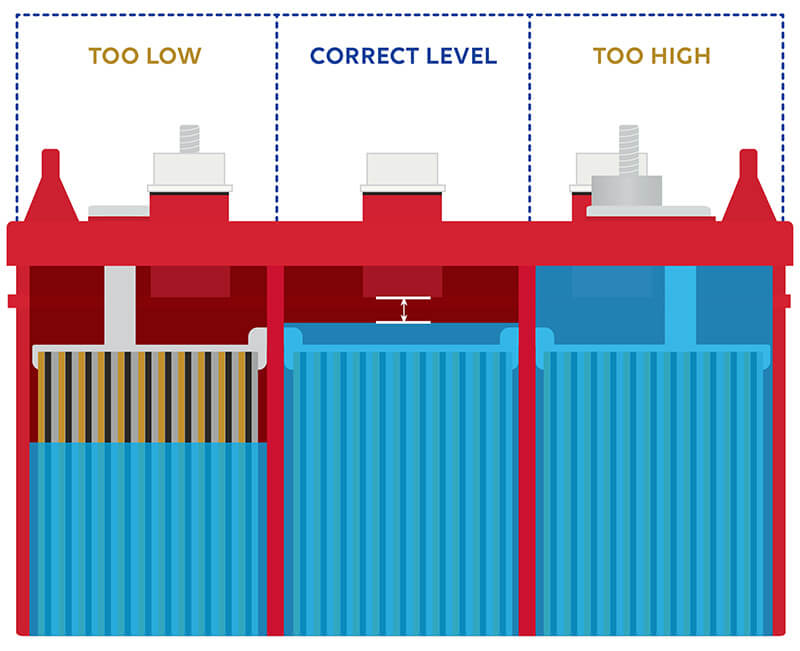The electrolyte level in lead-acid batteries can drop too quickly for several reasons.
- Overcharging: Charging the battery at too high a voltage or for too long can cause excessive gassing, where water in the electrolyte breaks down into hydrogen and oxygen gases and escapes, reducing the electrolyte level.
- High Operating Temperatures: Elevated temperatures can increase the rate of water loss through evaporation and gassing, accelerating the drop in electrolyte levels.
- Old Age: As batteries age, they may naturally lose electrolyte at a faster rate due to decreased efficiency and increased internal resistance.
- Physical Damage: Cracks or leaks in the battery case can allow electrolyte to escape.
- Frequent Deep Discharges: Regularly discharging the battery to very low levels can cause increased gassing during recharging, leading to a quicker loss of water.
- Poor Quality Battery or Electrolyte: Substandard batteries or electrolyte solutions may not hold up as well under normal operating conditions, resulting in faster loss of electrolyte.
Regular maintenance and proper charging practices can help mitigate these issues and extend the life of lead-acid batteries.


